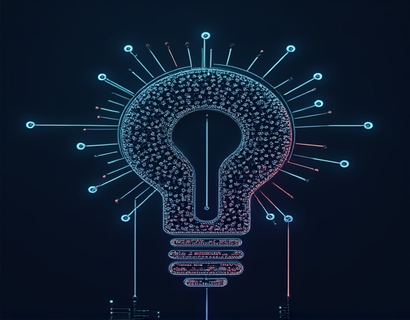Transforming Legal Insights and Lawyer Connections Through AI Chat Interfaces
The integration of Artificial Intelligence (AI) in the legal sector has ushered in a new era of efficiency and accessibility, particularly in providing legal insights and connecting users with legal professionals. This innovative approach leverages advanced AI technology to create a seamless experience for individuals and professionals seeking legal advice, thereby streamlining the decision-making process in legal matters.
Understanding the Need for AI in Legal Services
The legal field is notoriously complex, with intricate laws and regulations that can be challenging to navigate without expert knowledge. Traditional methods of seeking legal advice often involve lengthy consultations, high costs, and the need to sift through vast amounts of legal documentation. The introduction of AI-driven chat interfaces addresses these challenges by offering instant access to legal knowledge and connecting users with the right legal resources.
How AI Chat Interfaces Work
These platforms utilize natural language processing (NLP) and machine learning algorithms to understand user queries and provide relevant responses. When a user interacts with the chat interface, the AI analyzes the input to identify key legal concepts and concerns. It then retrieves pertinent information from a comprehensive database of legal knowledge, including case law, statutes, and expert opinions.
The AI continuously learns from user interactions, refining its responses to become more accurate and helpful over time. This adaptive nature ensures that the platform remains a valuable resource, even as legal landscapes evolve.
Access to Legal Knowledge
One of the primary benefits of AI chat interfaces in legal services is the democratization of legal knowledge. Users can access a wealth of information that was previously only available through extensive research or direct consultation with legal experts. The platform covers a broad spectrum of legal topics, from contract law and intellectual property to employment law and family law.
For instance, a user seeking information on contract disputes can input specific details about their situation, and the AI will provide a summary of relevant legal principles, potential outcomes, and steps to take. This immediate access to tailored legal insights empowers users to make informed decisions without the need for extensive legal training.
Connecting Users with Legal Professionals
Beyond providing legal knowledge, AI chat interfaces serve as a bridge between users and legal professionals. The platform can recommend lawyers based on the user's specific needs, specialization, and location. This recommendation system considers factors such as the lawyer's experience, client reviews, and success rates in similar cases, ensuring that users are connected with the most suitable legal counsel.
The AI can also facilitate initial consultations, scheduling meetings and transmitting necessary documents. This streamlined process reduces the friction typically associated with finding and hiring a lawyer, making legal services more approachable and user-friendly.
Enhancing Decision-Making with Data-Driven Insights
Informed decision-making is crucial in legal matters, and AI chat interfaces provide the necessary data-driven insights to support this. By analyzing vast amounts of legal data, the AI can offer predictions on case outcomes, highlight potential risks, and suggest strategic approaches. This level of analysis is particularly valuable for businesses and professionals who need to navigate complex legal environments as part of their operations.
For example, a company expanding into a new market can use the platform to understand local regulations, potential legal challenges, and recommended compliance strategies. The AI's ability to process and present this information in an accessible format enables users to make more confident and informed decisions.
User Experience and Accessibility
The design of AI chat interfaces prioritizes user experience, ensuring that the platform is intuitive and easy to use. The interface is optimized for various devices, including smartphones and tablets, allowing users to access legal insights and connect with legal professionals on the go. This flexibility is essential in today's fast-paced world, where users often seek legal advice outside traditional office hours.
Additionally, the platform can offer multilingual support, breaking down language barriers and making legal resources available to a broader audience. This inclusivity ensures that non-native speakers and those in diverse communities can also benefit from the platform's offerings.
Building Trust Through Transparency
Trust is a critical component in the legal field, and AI chat interfaces address this by providing transparent and explainable AI. Users can understand how the AI arrives at its recommendations and insights, fostering confidence in the platform's capabilities. This transparency is achieved through clear explanations of the AI's decision-making process and the sources of the legal data it uses.
Furthermore, the platform can include features that allow users to rate and review their experiences with recommended lawyers, contributing to a community-driven assessment of legal services. This feedback loop helps maintain high standards of quality and accountability.
Challenges and Considerations
While AI chat interfaces offer numerous benefits, there are also challenges to consider. One key issue is the accuracy and reliability of the legal information provided. The AI must be rigorously tested and continuously updated to ensure that the information remains current and accurate. Legal laws and precedents can change rapidly, and the platform must adapt accordingly.
Another consideration is the ethical use of AI in legal contexts. Ensuring user privacy and data security is paramount, as legal matters often involve sensitive information. The platform must adhere to strict data protection standards and comply with relevant regulations, such as GDPR.
Future Prospects of AI in Legal Services
The integration of AI in legal services is an evolving field with significant potential for growth. Future developments may include more sophisticated AI models that can handle complex legal reasoning and provide more nuanced advice. The integration of AI with other technologies, such as blockchain for secure document management, could further enhance the platform's capabilities.
As the legal industry continues to embrace digital transformation, AI chat interfaces will likely become an indispensable tool for both legal professionals and the general public. The ongoing refinement of these platforms will ensure that they remain at the forefront of legal innovation, providing valuable support in an increasingly complex legal landscape.
Conclusion
AI chat interfaces represent a significant advancement in the way legal insights and connections with legal professionals are delivered. By providing instant access to legal knowledge and streamlining the process of finding the right legal guidance, these platforms empower users to make informed decisions with confidence. As the technology continues to evolve, the potential for AI to transform the legal sector remains vast, promising a future where legal services are more accessible, efficient, and user-friendly.










































